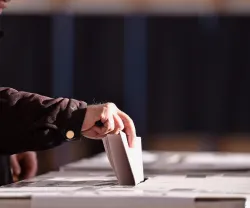
Intergenerational justice and sustainability
Are current generations using resources that will no longer be available in the future? Are they fuelling more generous pension systems today than they will be able to enjoy in the future? Is this distribution of resources between the generations fair? Find the answer to these and other questions in this collection of texts published by FFMS.
3 min
In contemporary Portuguese society, faced with serious demographic and economic problems, questions about intergenerational equity and social sustainability are becoming increasingly important:
- is there a future subject (a future generation) who can and should be considered to have rights at the present time?
- who should be involved in defining this framework?
- how can society be aware of its values and reflect them in its global framework of rights and obligations?
- how do public policies and the constitutional framework itself affect the distribution of resources and consequently intergenerational equity?
This set of texts published by Fundação Francisco Manuel dos Santos seeks to discuss these questions, addressing the philosophical foundations and constitutional theory underlying this discussion, as well as the public and business policies that could respond to the problems associated with it, such as:
- public debt;
- public spending;
- environmental policies;
- the labour market;
- Social Security and the pension system.
Through these texts, Fundação Francisco Manuel dos Santos seeks to fulfil one of its founding principles, that of contributing to a more informed society and, because it is more informed, a freer society with better public policies.
There are countless acts or omissions of today that will have repercussions on the future: consumption of non-renewable resources, investment with very long-term returns, innovation that tends to have irreversible effects on society, anticipation of future gains, and many more. This dependence of future generations on the choices and behaviour of the current generation has intensified since the middle of the 20th century, due to unprecedented developments in the technological, demographic and social fields. The question that these facts raise is whether current generations have acted fairly or fulfilled their obligations towards future generations.

Study trailer










